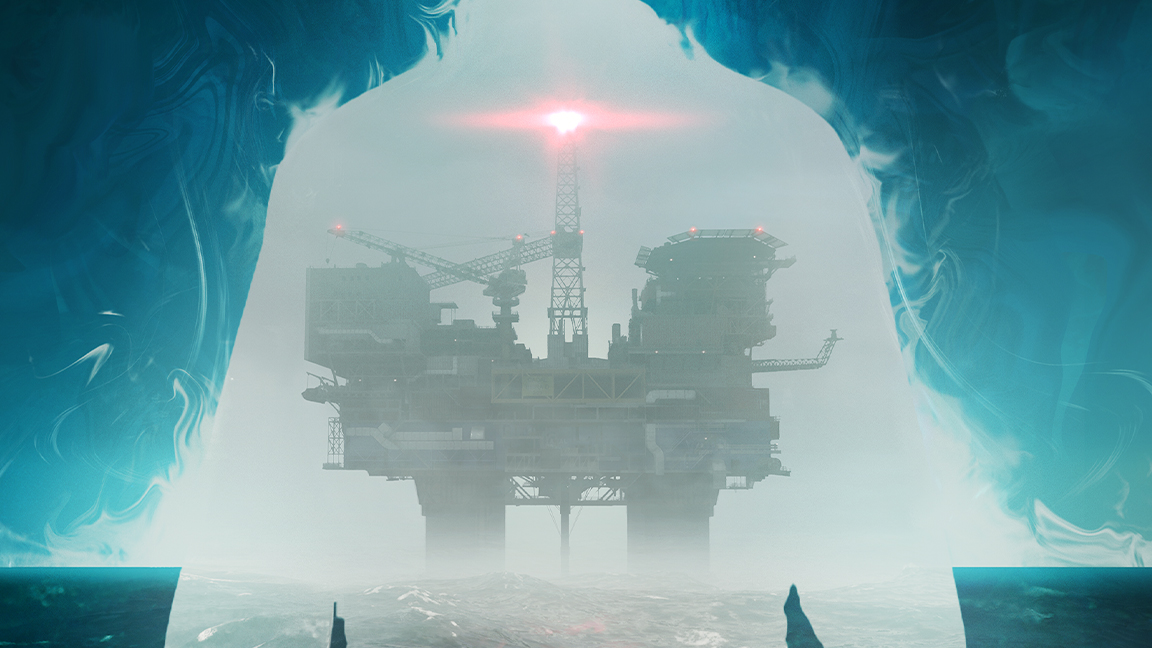

Publisher Secret Mode
Developer The Chinese Room
Platform Xbox Series X / S (reviewed), PlayStation 5, PC
Release Out now
Price $39.99 / £29.99
A horror game that can nail an authentic sense of place will always achieve the ultimate goal, of scaring the living fudge out of the player. Still Wakes The Deep really manages to bring to life the isolation of working on a 1970s oil rig, and then it carves it up, bends it, turns it inside out and spits it back. Because if working on a North Sea rig in the age of analogue wasn't dangerous releasing a cosmic horror just made things much, much harder.
Reviewing on Xbox Series X, this is another game to showcase the quality of Unreal Engine 5. Opening with a poetic moment of calm, as the camera sweeps above the waves, the oil rig silhouetted in the mist, as protagonist Cameron "Caz" McLeary reads a heartfelt letter from his wife, I already sense something really nasty lies ahead.
Just like the developer’s previous games Dear Esther, Amnesia: A Machine for Pigs and Everybody’s Gone to the Rapture atmosphere and a believable setting is crucial. As the game begins Caz is free to wander and explore the cabins of the rig, peering into rooms reveals era-perfect details from the orange 70s Boho curtains to the cluttered desks and shelves filled with photos, newspapers and posters. Each room tells a story, revealing a little of the background to Caz’s co-workers as well as lending the game a heavy sense of time and place, one in which the historical political upheaval of the mid-1970s looms large.
Still Wakes The Deep drips in detail
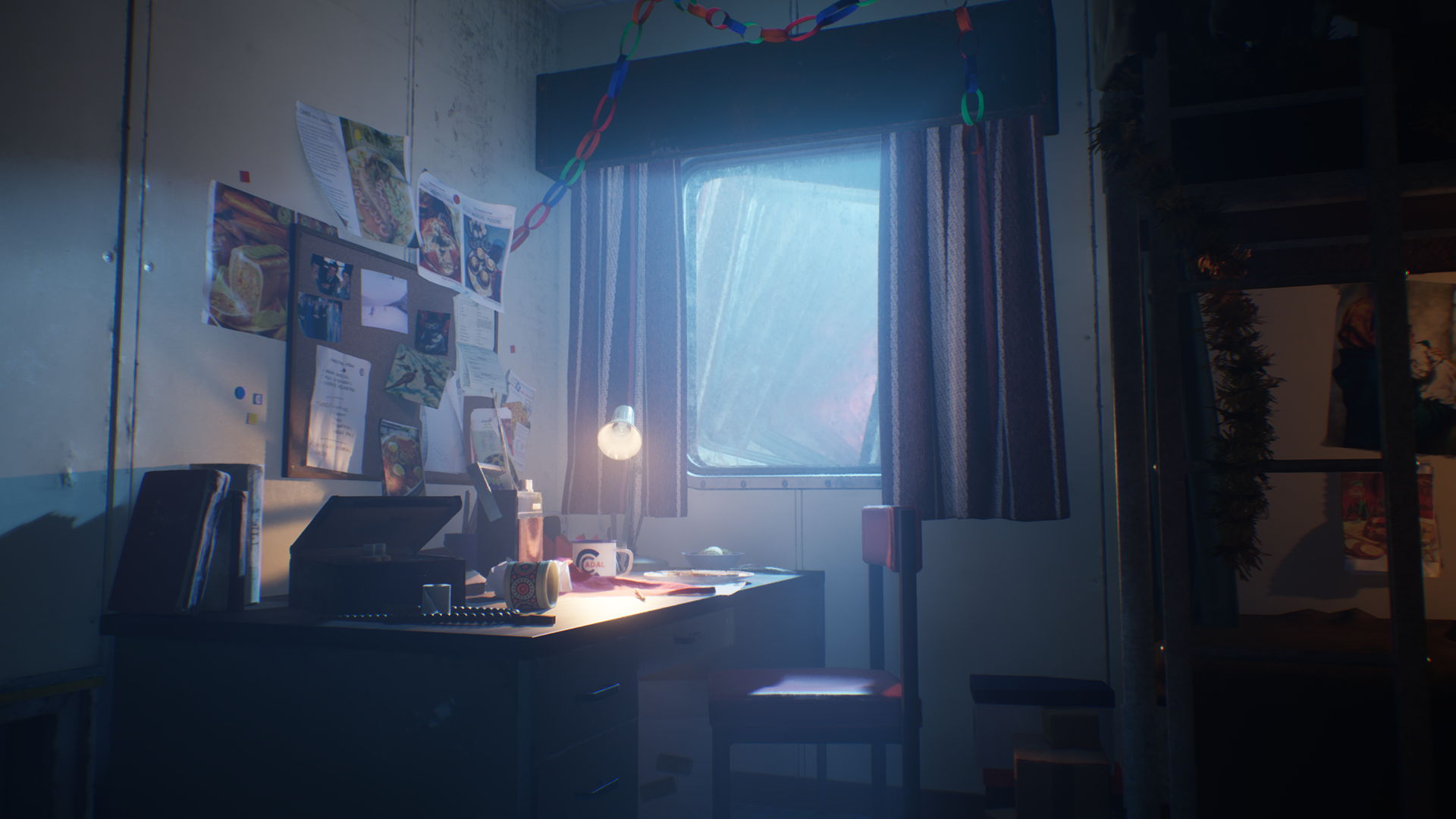
Into the mess hall and Caz can sit with and talk to his pals in some of the most pitch-perfect dialogue I’ve heard in a video game (my brother worked on the Glasgow docks, so I hear him in many of these characters). The detail, again, sells the setting - one character’s plate is fuller than the others because he’s nervous of an upcoming dive. This early setup is thick with foreshadowing.
After performing a couple of odd jobs as my newfound co-workers drop F-bombs and banter, it really doesn’t take long for a something to break loose, and the game’s finely crafted rig begins falling apart. An entity from the deep, dark waters of the North Sea is tearing apart and twisting the rig, Caz’s goal is to escape, flee, put simply… get the f**k of this rig; no guns, combat or heroics.
With such a pared back design, inventive ways to interact with the rig to progress become the centrepieces of the game. Keys are turned, levers pulled, switches flipped; navigation is physical and responsive, as Caz clambers around ledges, swings from beams and hauls himself up a wrecked life boat hanging above the dark raging waters below - a makeshift ladder leading to a moment of safety.
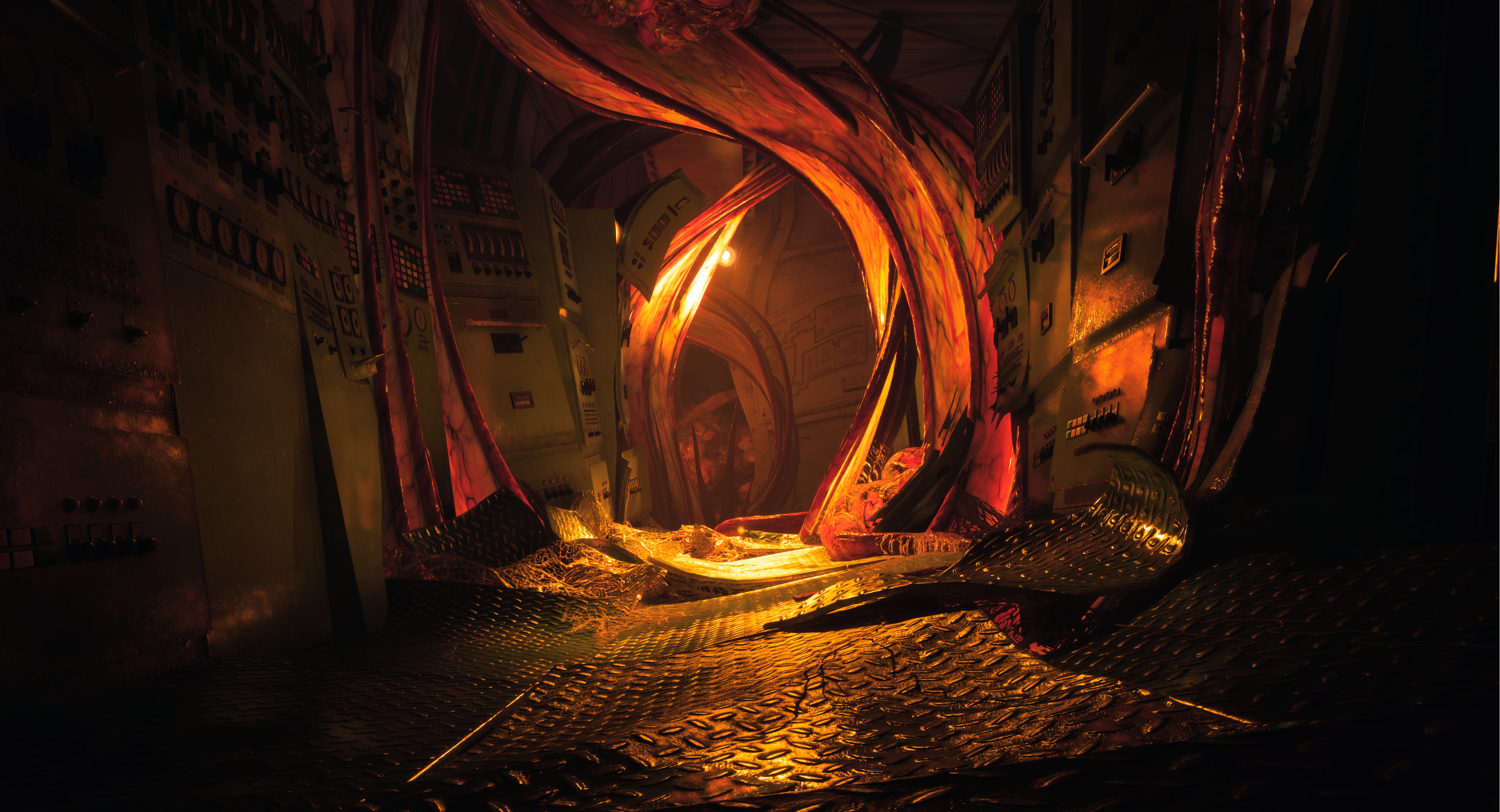
What starts as an ode to 1970s disaster movies, like The Poseidon Adventure, soon spirals into psychological terror, and then body horror – Still Wakes The Deep sheds its walking sim skin and bursts into a grotesque blend of The Thing, The Mist and even shades of Don’t Look Now in its artistic approach to colour, VFX and setting.
The directness of the game's design, with 'what you do' reduced to running, fleeing and stealthing past a massive tentacled thing, whilst flipping switches to open the next area of the rig, could be reductive. But the game’s setting creates a horror playground that taps into almost every psychological fear from acrophobia, claustrophobia to thalassophobia.
Caz’s escape takes him across, beneath and inside the rig. The pacing is excellent and continuously surprises - moments of squeezing through narrow, dark confined spaces are jettisoned for precarious walkways hanging high above the dark waves below - made in Unreal Engine 5, these are beautiful and organically tumultuous. One moment when I need to swim through flooded areas of the rig genuinely has me on edge - the water rendered here is thick, oily and littered with debris - flakes of rust and discarded cigarettes enable light from above to bounce and flicker.
Unreal Engine 5 powers a horror spectacle
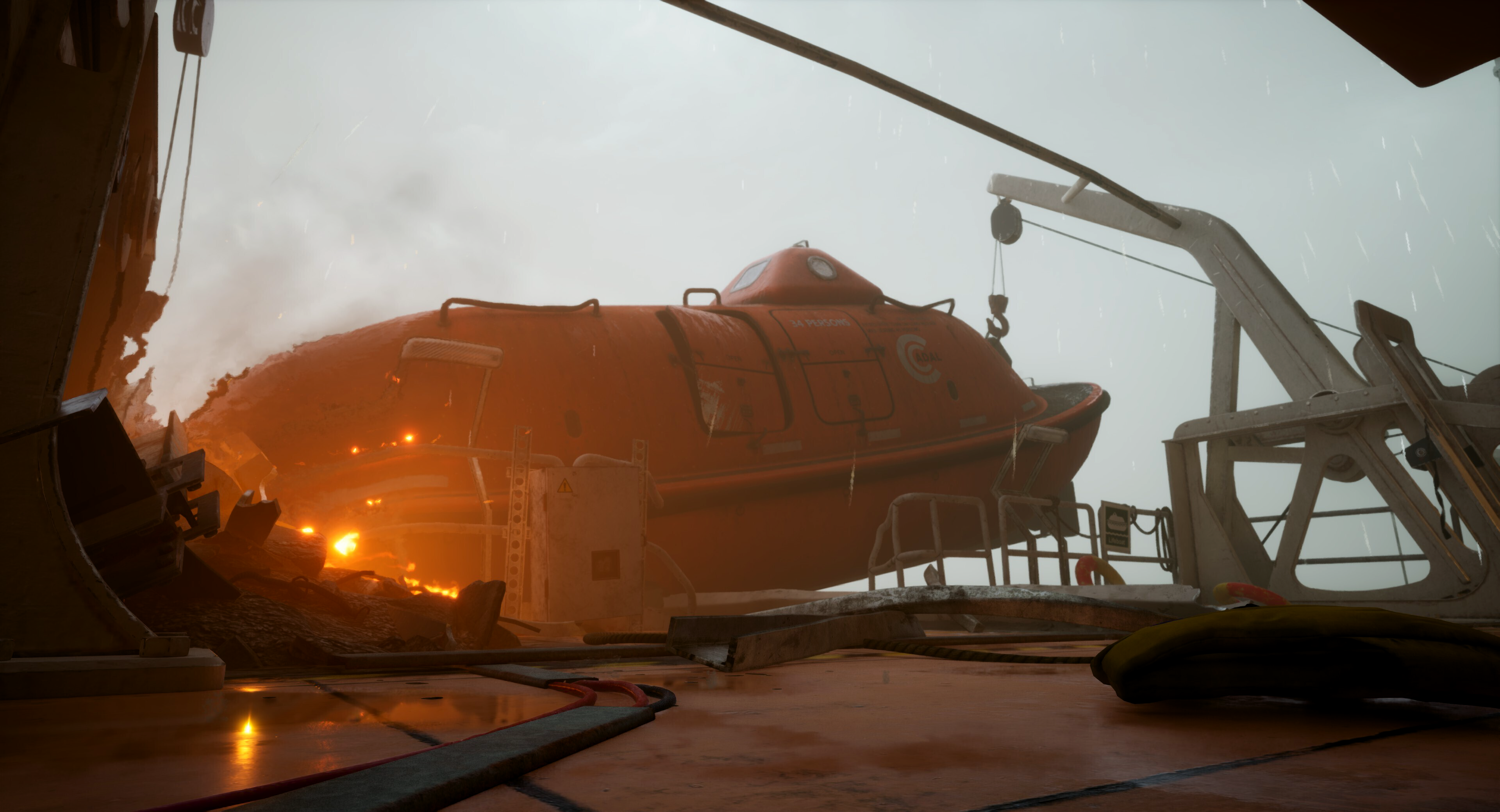
Audio design is pitch-perfect. Metal chains clink and clank in the background, glasses chink as the wind rattles a room and there’s a metallic grind of steal that reverberates as the rig shifts against the waves. Somewhere in the bowels of the rig, and out in the mist, the gurgled screech of one of Caz's pals can be heard.
Re-running previously safe areas, now warped, splintered and bent lends the rig an entirely new character. But it's one that remains built on authentic detail - cracked, smoke-stained ceiling tiles, bent hallway wooden veneers, and the personal belongings of Caz’s co-workers now floating in the flooded corridors - everything is here to deliver emotional depth.
Unreal Engine 5 helps elevate the game’s world and its credibility, and in doing so sell the horror and storytelling of every moment. Nanite ensures the body horror of Caz’s co-workers fates is grotesquely detailed, while Lumen bounces from naturalistic lighting to the psychedelic glow and fracture light of the cosmic horror that’s spreading through the rig. UE 5 sells the horror as creatures are hinted at in the mist, against the spotlights and early morning sun, lit beautifully to suggest the horror but never fully realised.
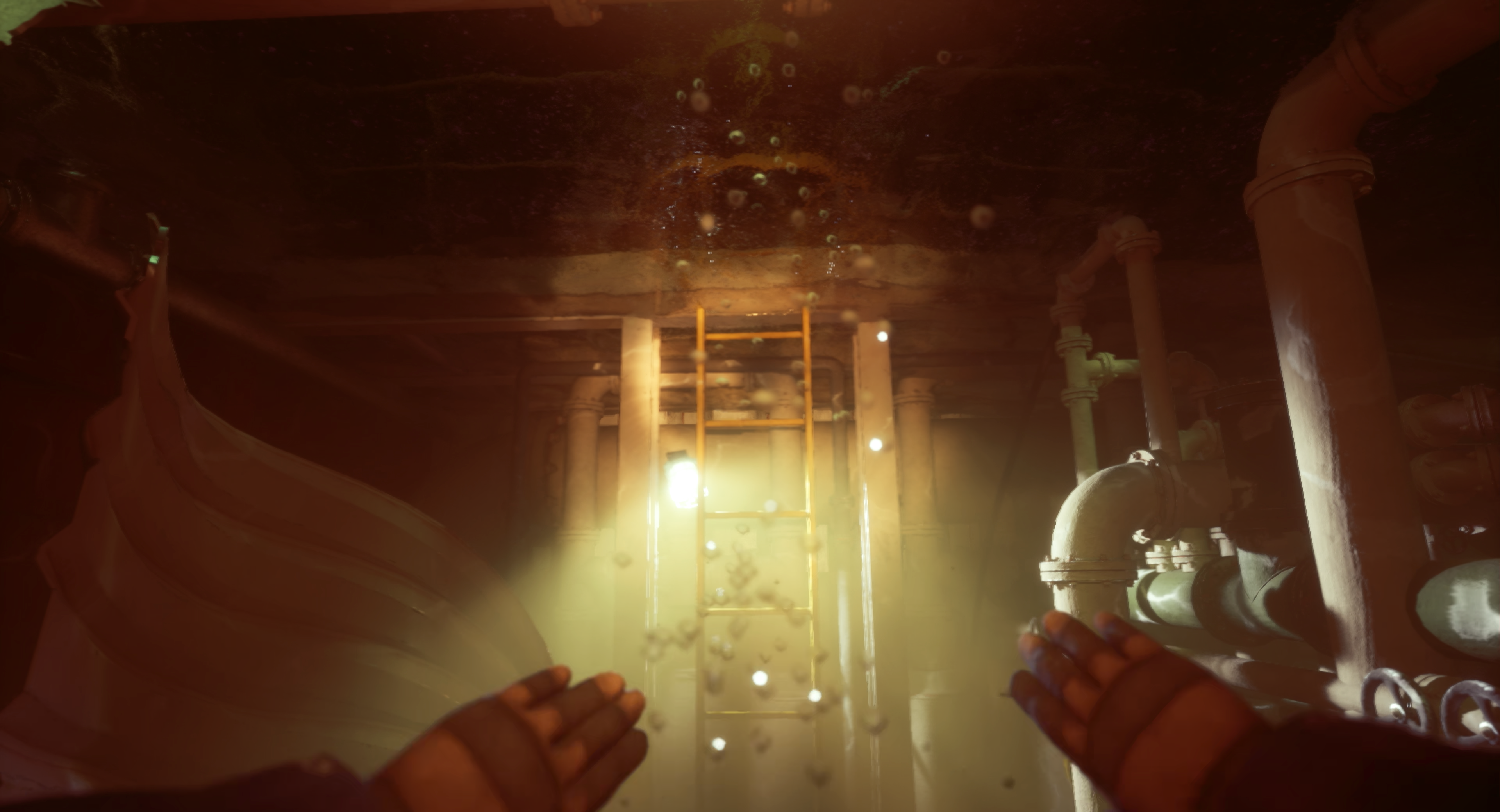
The lack of combat and traditional survival gameplay could have held Still Wakes The Deep back, but that’s like comparing The Shining to Scary Movie. You're purposefully restricted to the singular goal – escaping – and the game is built around this singular aim.
Exploration is minimal, however, and there is a sense of being relentlessly pushed and pulled through the rig, which can mean agency is tempered. But the focus on storytelling ensures those moments of gruesome unknowable terror land harder.
It also means Still Wakes The Deep has layers; layers that niggle at you even when the credits roll; layers that keep you engaged beyond the need to rubber neck at the next horrific set piece. The themes of family, loss and the power of nature drift about the abandoned halls of the rig and naw at you just as much as any deep sea body horror.
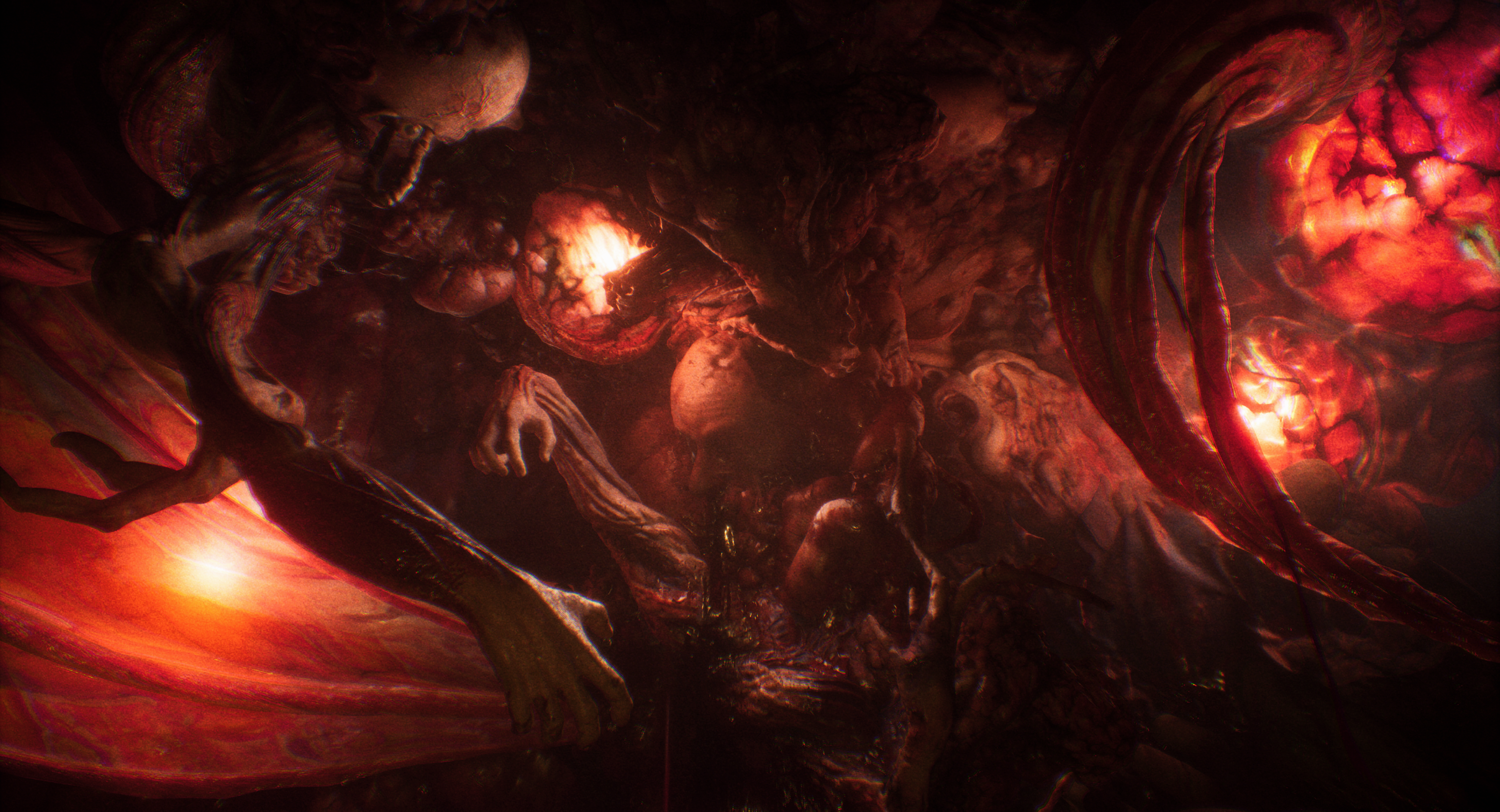
The Chinese Room has crafted an alien, isolating setting, dripping in period detail, Unreal Engine 5 spectacle and a narrative that never lets up. Would I have liked to explore this setting a little more? Perhaps, but then that's what replays are for.







